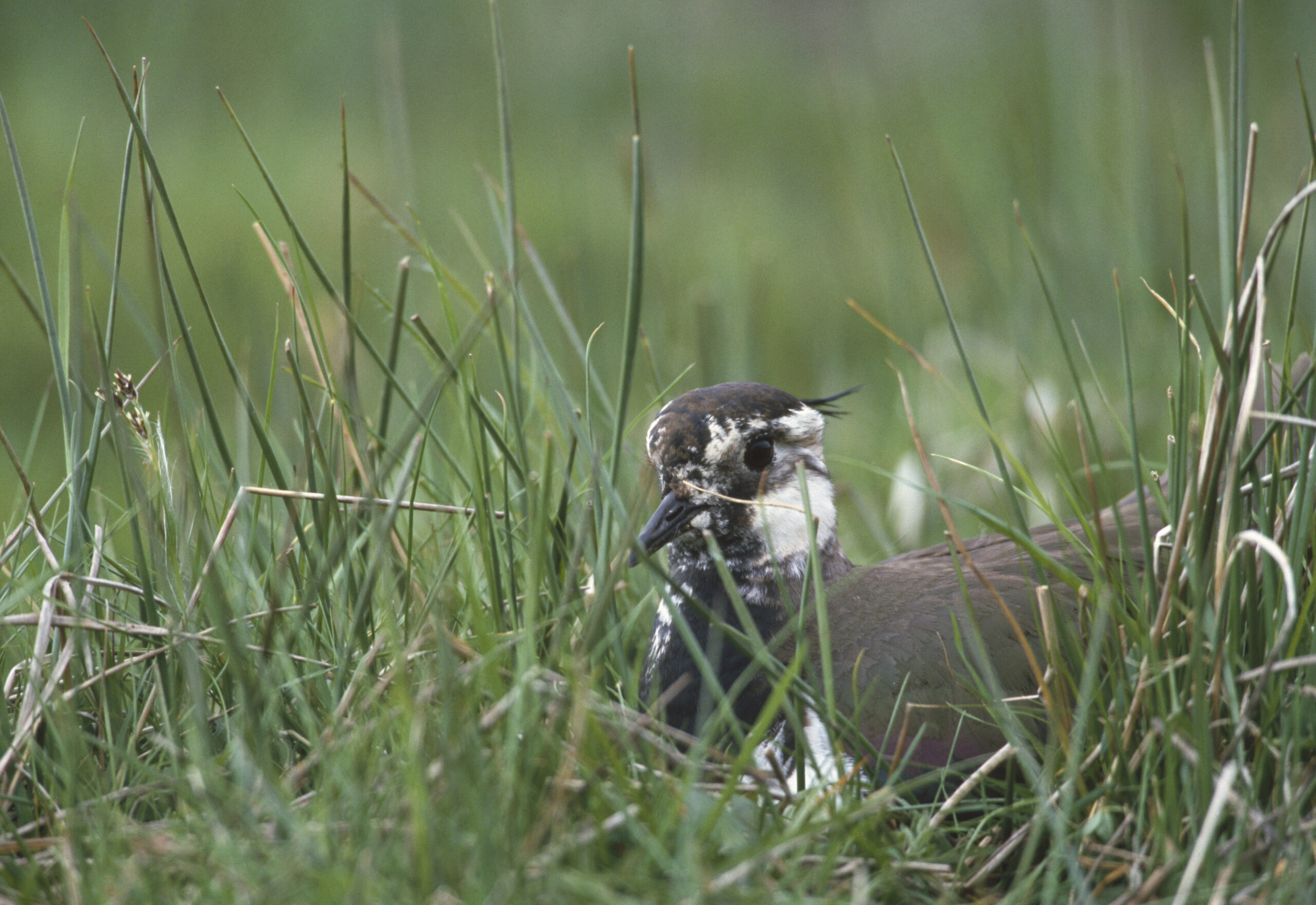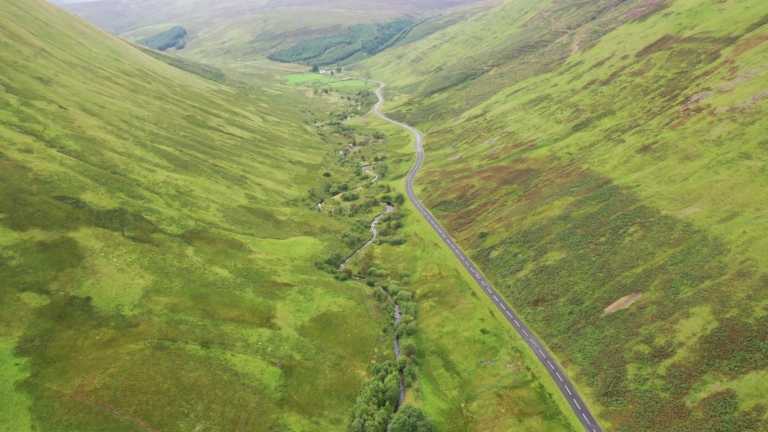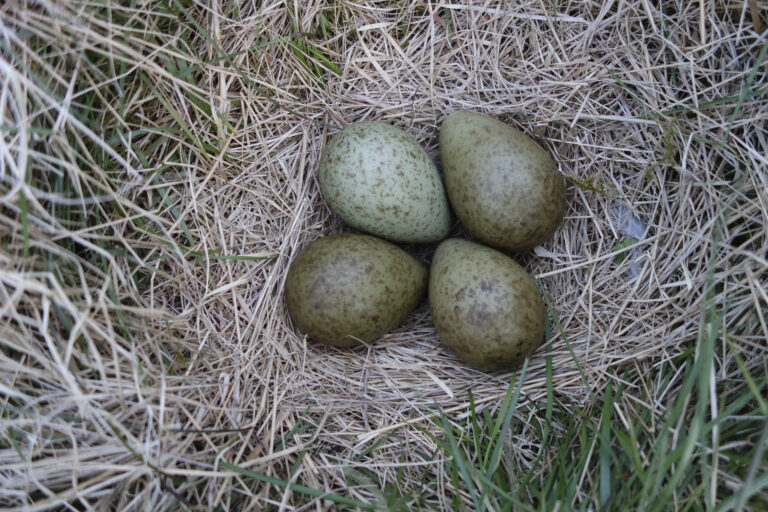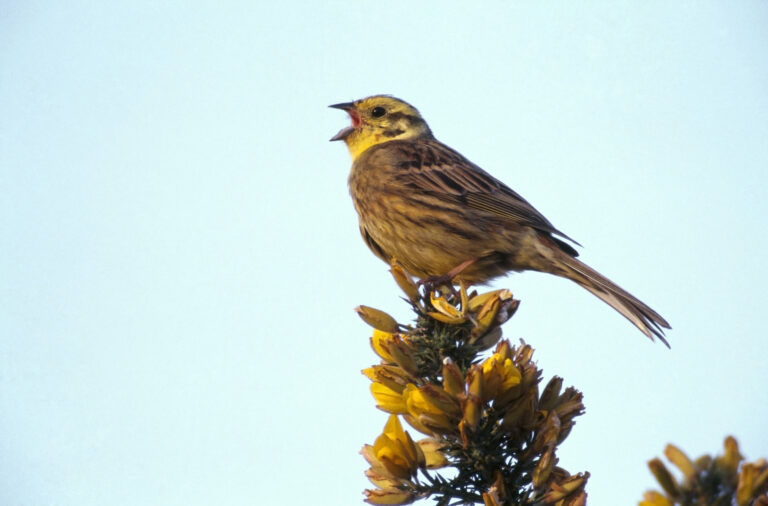By Vicki Swales, Head of Land Use Policy, RSPB Scotland
The latest episode of David Attenborough’s epic TV series, Wild Isles, has highlighted the importance of managing farmland with nature in mind. In this blog, Vicki Swales explains the opportunity we have in Scotland to move towards more nature- and climate-friendly farming.
While Wild Isles has given starring roles to species familiar to us in Scotland, the reality is we are one of the most nature-depleted countries in the world. Many species have been affected by the way we have managed our land over recent decades – habitat has been lost as hedgerows have been removed and wetlands drained, and food sources have been lost as pesticide use has increased. You can see the crisis facing our farmland wildlife in the graphics below. Species such as Curlew, Kestrel, Lapwing, and Oystercatcher are all in serious trouble.
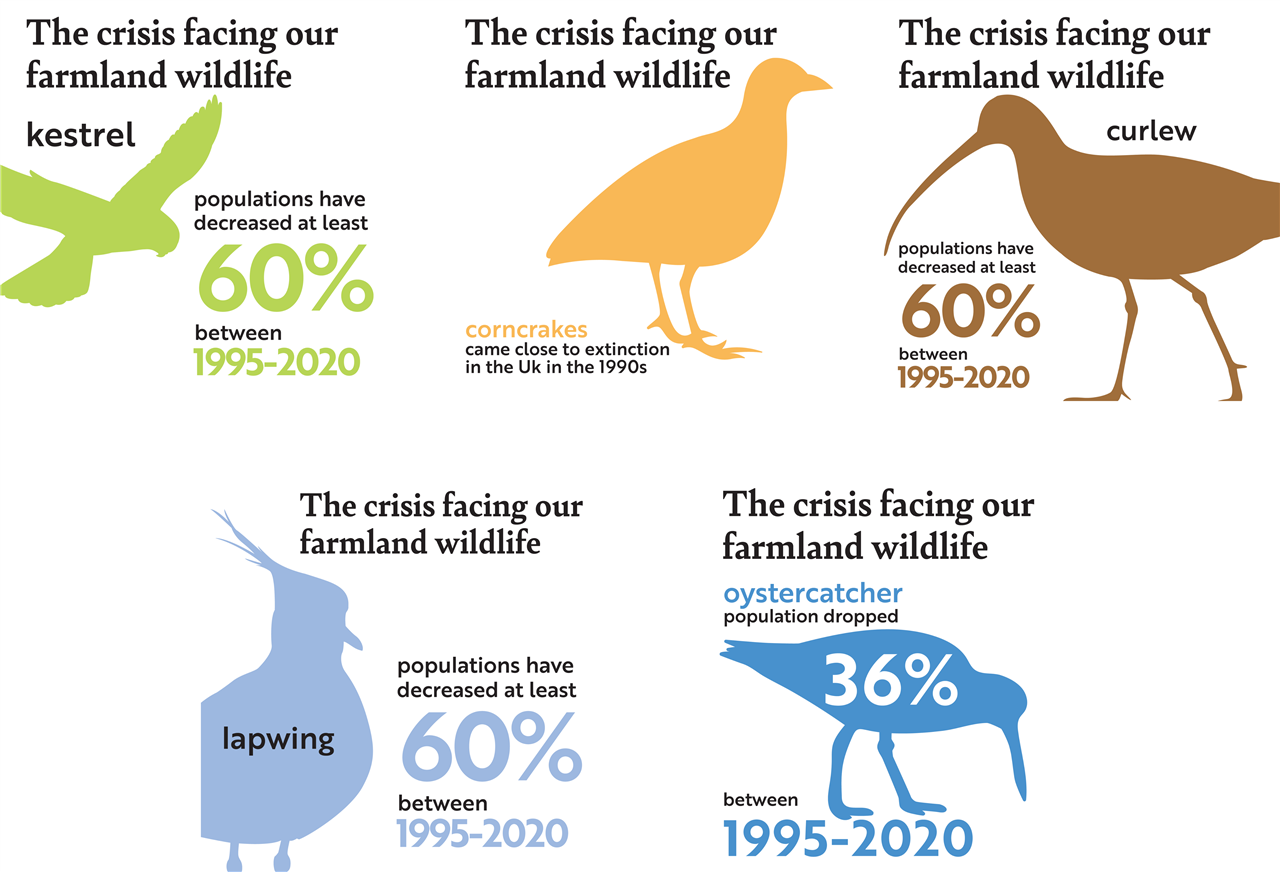
Why farming matters
Agriculture is the largest use of land in Scotland, with around three-quarters of our land being farmed. Currently, less than 10% of public funding given to the industry pays for farming methods that support nature and tackle climate change. This must change. If we can transform how we farm, we can secure big wins for our wildlife, while continuing to produce healthy food and provide rural jobs.
A major report produced by the RSPB last year, ‘A world richer in nature’, identified four specific actions for Scotland:
- Maintain the current level of public funding for farming but ensure most is spent on supporting land management and farming methods that are nature-friendly and reduce greenhouse gas emissions.
- Increase the amount of funding spent on advice, knowledge transfer and training.
- Increase the area of organic land from 2% to 10% by 2030.
- Implement food system change through the Good Food Nation Act (2022) to support the transition toward more nature friendly forms of agriculture.
Later this year, there will be an opportunity to ensure farming policy is reformed and the more than half a billion pounds of farming subsidy handed out each year helps nature and our climate. The Scottish Parliament will debate an Agriculture Bill which will set the framework for future farming policy.
A version of this blog was first published by RSPB Scotland on 28 March 2023.
Disclaimer: The opinions expressed in this blog are the author’s and do not necessarily represent the views of all the organisations backing the Farm for Scotland’s Future campaign.
If you haven’t already done so, please join the the Farm for Scotland’s Future campaign so we can send you updates and let you know how you can get involved.
